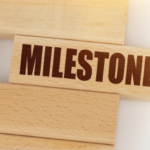Ultimately, Dr. Helfgott said, the vast majority of rheumatology fellows will move forward on schedule in their training, with maybe 1% turning out to be unsatisfactory or not appropriate for professional practice. “I dispute that milestones can effectively separate trainees on either end of the spectrum. I would argue these are not the tools we should be using.” A less cumbersome system could still identify that 1% without the onerous requirements of milestones for everyone else. Keep it simple, he urged, proposing a system that gives trainees an evaluation score of 1–5—perhaps with a positive/negative modifier—in six general areas of intellect, curiosity, clinical skills, procedural skills, scholarship and professionalism.
“The greatest problem we face in medicine is that we don’t really know the evidence,” Dr. Brown responded. He acknowledged the drawbacks of milestones, but added, “They will provide the basis of evidence that we need to move forward,” using data to drive future improvements in the program curriculum.
Larry Beresford is a freelance medical journalist in Oakland, Calif.
References
- Brown CR Jr, Criscione-Schreiber L, O’Rourke KS, et al. What is a rheumatologist and how do we make one? Arthritis Care Res (Hoboken). 2016 Aug; 68(8):1166–1172.
- Desy JR, Reed DA, Wolansky AP. Milestones and millennials: A perfect pairing—competency-based medical education and the learning preferences of Generation Y. Mayo Clinic Proceedings. 2017 Feb;92(2): 243–250.
- Beeson MS, Holmboe ES, Korte RC, et al. Initial validity analysis of the emergency medicine milestones. Acad Emerg Med. 2015 Jul;22(7):838–844.



